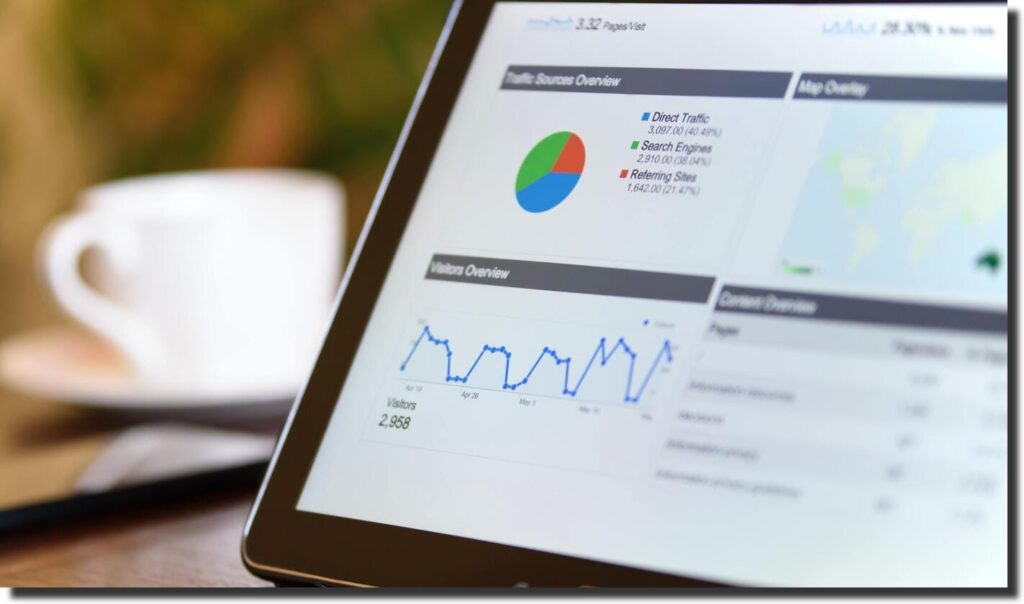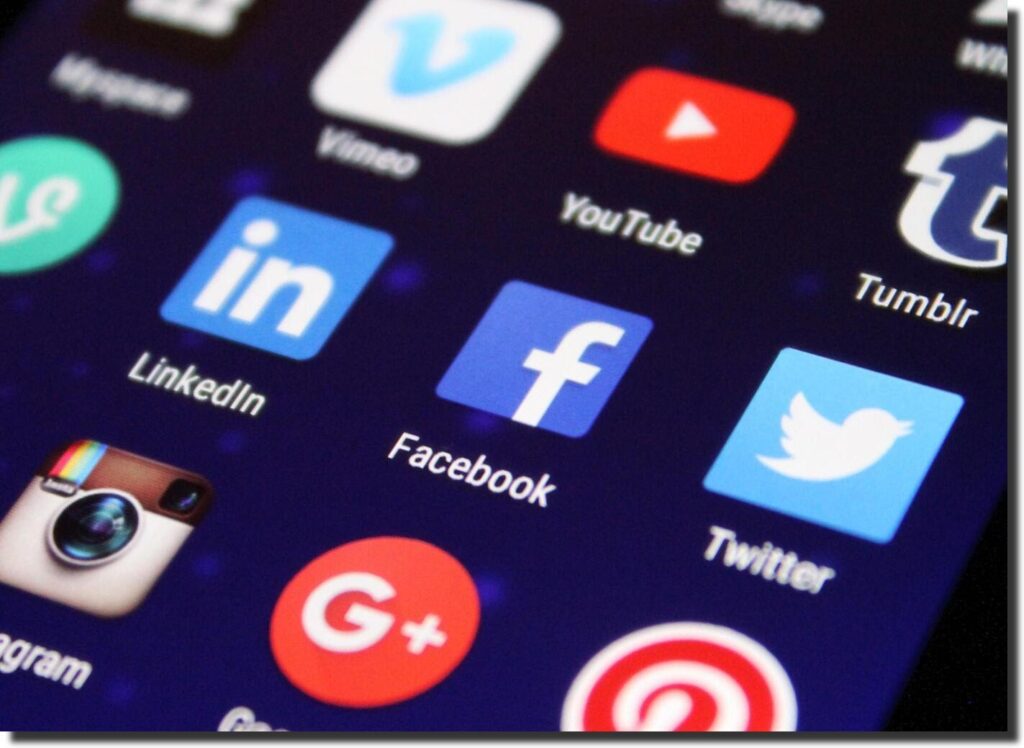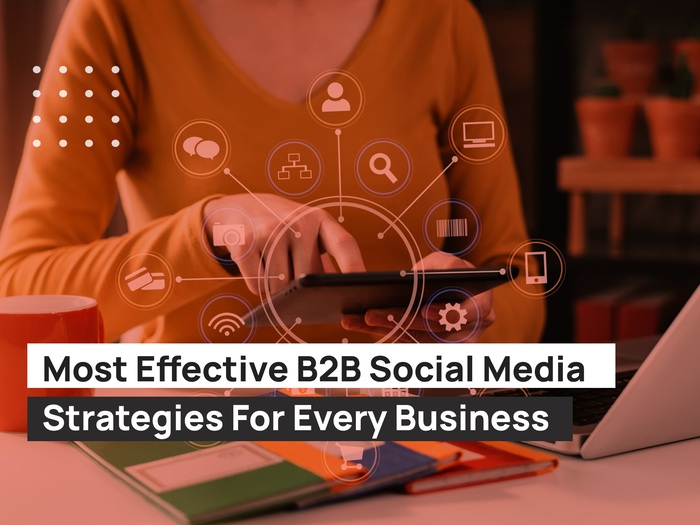How have the pros and cons of social media affected you so far? There are so many ways to use social media. You can use it to market your business, as a social platform, entertainment, watch videos, and connect with friends.
According to Statista, 3.6 billion people were using social media as of 2020. This figure is expected to rise to 3.78 billion users in 2021. Facebook is the most popular social media platform.

The advancement in technology has led to the growth of social media. Other popular platforms are Instagram, TikTok, Pinterest, YouTube, LinkedIn, Twitter, and WhatsApp.
There are so many benefits of social media. First, the platforms are free to use. They help you grow your brand online, create healthy relationships, attract traffic, and increase conversion.
But, there are also disadvantages to using social media. Let’s have a look at the pros and cons of social media.
Pros of Social Media
Are you already using social media? If you are not, then you are missing out. These platforms are free to use. Regardless of whether you are using them for business or personal use. There is a lot you can do with social media.
For instance, TikTok is a social media platform that was launched in 2018. With this platform, you can post a video, create a challenge, follow users, and comment on a video.
This way, you gain followers, promote a business, or engage with people from all over the world.
Let’s have a look at other advantages and disadvantages of social media.
Advantages of Social Media
1. Cost-effective
Creating a social media account is free. This does not matter on the type of account that you are using. The only time when you will use your credit card is when you are doing paid advertising.
If you do not have skills in social media management, you can hire a digital marketing agency. An agency will manage your accounts, monitor performance, and create a content calendar for your social pages.
2. Build a brand
Building a brand online should be at the top of your social media goals. With social media, it is easy to create a strong brand that users can associate with and trust.
But how do you do it? Remember the social media accounts are free to create. You share content that is specific to your brand, promote offers, and connect with the right audience.
The advantage of building a brand is that you attract an audience that would have been very hard to reach. It helps attract new customers and increase online sales.
3. Paid advertising
Social media marketing helps create awareness, generate leads, and attract traffic. You can sponsor ads on all social media platforms. You set the amount that you are willing to spend on an ad and target the right audience.
It’s an easy and fast way of marketing compared to traditional methods like banners, newspapers, and posters. With paid advertising, you also get to monitor the performance of an ad in real-time.
With paid advertising, you are able to achieve specific goals. For instance, if you are promoting a new product or service, you start by creating awareness.
This form of advertising is specific, easy to monitor, and guarantees results.
4. Advantage of User-Generated Content (UGC)
If you are not using UGC, then you are missing out. UGC is any content that is generated by the audience and not the brand. It helps brands or businesses to understand and engage with their audience.
User-Generated Content also increases the visibility of a brand. Let’s have a look at a practical example. Someone creates a video on Instagram that shows different ways of using a product.
The product is specific to your brand. The user tags the brand and shares the video on Instagram reels or IGTV. As the owner of the product, you share the video on your social media pages.
Now, this is user-generated content. The user creates content, the brand acknowledges the content by resharing it with your followers or rewarding users.
5. Reach untapped audience
Social media helps you reach an audience that has no idea that your business exists. The best way of reaching out to a bigger audience is by using hashtags, optimizing keywords, and paid advertising.
Also, adding location to your social pages helps you target an audience within a specific geographical boundary. Optimizing your target reach can drive better results.
Social media usage is growing worldwide. As more people continue to join the platforms, make sure you target the right audience. To maximize the audience reach, make sure you use the right social media platforms.
For instance, if you are looking for corporate relationships, LinkedIn is the social platform to be. It also works well with B2B businesses.
6. Improves customer support
Social media makes it easy to attend to user issues fast. Instead of a user having to call or email a brand, they can use social media to get quick assistance.
Another form of customer support is by using a chatbot. A chatbot works well with a website. Customer support is essential to the growth of a business.
The faster you respond to your customer inquiries, the more you attract customers to your business. It also helps you build a healthy relationship with your customers.
7. Create one-on-one relationship
Social media helps you create a one-to-one relationship with your customers. Having a healthy relationship with clients helps to build trust and increase customer loyalty.
Having this kind of relationship helps you improve your reputation with unhappy clients. It helps personalize communication with your clients.
8. Monitor performance

With social media, it’s easy to monitor the performance of your pages. You can use Google Analytics to monitor your pages and ads. There are other social media analytics tools to grow your audience.
Facebook, Instagram, LinkedIn, and Twitter are social media platforms that give you insights on post performance.
By monitoring the performance of your social pages, you can make the necessary changes to increase sales. Social monitoring also helps you create content that is specific to your customers.
You also get to find out the best performing content and hashtag. For instance, you can create a hashtag that is specific to your brand.
If the clients use the hashtag, it centralizes conversation, making it visible to your audience.
9. Helps to repurpose content for social sharing
Creating content for social media can be overwhelming. If you run out of ideas to post, you can reshare the content in your calendar. With social media, you need to work with different accounts to maximize traffic.
Therefore, you can repurpose content and post it on social platforms. Here is how. Let’s say you had planned a month’s content for Facebook, LinkedIn, and Twitter.
If you are not ready with fresh content, you can edit and reshare Facebook’s content on LinkedIn. This is how you repurpose content and share it on social media.
10. Increase conversion
Social media helps to drive traffic and maximize conversion. For a business, social media can help convert new customers into repeat clients.
For instance, with ads, you can sponsor an ad with the goal of increasing conversion. Such ads are specific and require you to be careful about how you set your target.
If you are sponsoring an Instagram or Facebook ad, use the Facebook Ads manager for detailed targeting. A conversion is a successful lead or prospect that turns into a customer.
With the conversion, you can create healthy relationships and turn them into repeat customers.
Disadvantages of Social Media
For a digital marketer, which are the pros and cons of social media, have you come across so far? Even with the above advantages, there is also the downside of using social media.
But, this should not stop you from using the platforms. The advantages of using these platforms outweigh the cons. With the growth in technology, you cannot miss being on social media.
Whether you are using social media for business or personal use, there are drawbacks to using these platforms.
Some of the cons of social media are:
1. Time-consuming
Social media is time-consuming. For example, if you create a new account, it takes a longer time to attract followers or subscribers. This means that you have to post more often to increase online visibility.
Besides this, you need to analyze the performance of your ads and posts. You can choose to monitor daily engagements and activities. This means that you have to dedicate enough time to monitor your social media.
You can hire a marketing agency or a freelancer to help you with social media management. Otherwise, you may end up concentrating on social platforms only.
2. Slow Return on Investment (ROI)
When using social media, you need to measure the ROI of your activities. Use Google Analytics to measure the results of all your marketing activities.
With social media, not all platforms will reward your efforts. You may invest in Facebook, for example, only to realize slow results. You can even sponsor ads and give offers, only to end up making more losses.
With social media, you have to be open to slow results despite your efforts.
3. Exposure to competition
Social media exposes you to your competitors. If you are running your business online, your competition will be looking out for all your social moves.
They will check your strategies and use them in their business. In addition, they may end up targeting your audience and converting them into customers.
Exposure to the competition is both positive and negative. Positive in that, it helps keep you on your toes. You have to make smart goals to attract traffic to your social platforms.
On the negative side, you may be one with the original idea, but your competition uses them to grow to their advantage.
4. Prone to negative feedback and criticism
In social media, customer feedback, comments, and reviews help you make necessary adjustments. But what happens when you receive negative feedback and criticism?
This information is visible to all your followers, potential followers, and clients. But how do you solve this? Since you cannot always hide negative feedback, the best thing is to act fast.
Reply to the feedback, testimonial, or comment to protect your reputation. Not all comments will always be negative. Try as much as possible to have as many positive reviews on your social pages.
5. Social media can be expensive
If you are running social media accounts for your business, you already know that they can be quite expensive. First, you need a social media manager to manage your accounts.
Hiring an agency or digital marketing personnel will have you paying for the services. It ends up being an additional cost.
Paid advertising is another cost. You may invest in ads and still have a low ROI. Even though you are free to set the amount to spend on an ad, it still counts as money spent.
Therefore, you end spending money and still not having satisfactory results. It is about taking the risk and weighing on the pros and cons of social media.
Types of Social Media
With the rise in social media platforms, it may be tempting to try each of these platforms. But, do not limit yourself to using only one social platform.
With the pros and cons of social media in mind, you are already aware of what to expect. However, this should not limit you from using social media.
Social media is about brand awareness, driving traffic, engaging, and driving conversion. What if you are new to social media and you are not sure where to start?
Do not worry. We got your back. Let’s have a look at the different types of social media.
1. Social networks

Individuals who use social media as a social network use it to connect with people. Examples are Facebook, LinkedIn, and Twitter. These platforms allow users to interact with each other.
For individuals, you can use these platforms to engage with friends, especially on Facebook. LinkedIn is more of a career platform, where users can look for professional services.
As for Twitter, this platform helps you discover trending topics, news networks, and professional use. With all these platforms, you can use them to run a business.
2. Video sharing sites
Videos help to pass information fast. Most people prefer watching a video rather than reading long chunks of text. There are specific social media platforms that you use to share videos only.
These sites are YouTube and Vimeo. With over 2 billion users on YouTube, it is the most popular platform for sharing and creating videos.
Video-sharing platforms have the highest conversion and shares. They also help to pass information fast. Examples of content to share on these sites are weekly vlogs, guides, and marketing videos.
Like other platforms, video-sharing sites have similar pros and cons of social media. Besides YouTube and Vimeo, you can also use Instagram reels and IGTV to share short-form videos.
3. Interactive media
One of the goals of social media is to drive engagement. Examples of interactive media platforms are TikTok and Snapchat. TikTok allows users to share a short video of 15-30 seconds.
Brands can use TikTok to share a challenge and ask followers to do the challenge. In return, they then reward the winners. Besides this, they can also use this platform as a form of marketing.
4. Media Sharing networks

These platforms allow you to share videos, images, and other high-quality visuals. Examples of such social media platforms are Instagram and Pinterest.
Visuals tend to attract a wider audience than other forms of content. If you plan to use these platforms for your business, you need to share images and videos that have high quality.
When sponsoring ad campaigns, you need to have relevant visuals that compel users to click. YouTube is also a visual sharing platform. You create and share videos with a vast audience.
Media sharing platforms only focus on videos and images. With Pinterest, you share creative visuals, photos, DIY, and product images.
5. Blogging and publishing networks

Publishing content online or on a blog helps attract traffic and improves the SEO of a website. Blogging gives readers valuable information about a topic.
Blogging creates awareness, engages with the audience, and generates leads for a business. It also plays a big part in search engine optimization.
Publishing content increases the ranking and visibility of a website. Such blogging and publishing networks are WordPress, Tumblr, and Medium.
Make sure you go over the pros and cons of social media above before you decide on a platform to use.
Reasons Why People use Social Media
Individuals use social media for different reasons. Despite the pros and cons of social media, people use it for entertainment, marketing, making connections, and advertising.
Here are the best social media marketing tips to use in 2021:
1. Create and publish content
Well, social media is about creating valuable content and sharing it with the right audience. Besides entertainment, you can publish quality content for free.
For instance, with Facebook and Instagram, you can use the Creator Studio to create, schedule, and publish content. With social media, you do not have to create and publish content in real-time.
Additionally, there are other social media management tools. Some of the tools are premium, while others are free to use.
Create organic and sponsored content for social media platforms. Organic content is free, while sponsored content is content that you pay to promote.
2. Drive traffic to a website
Social media marketing helps you drive traffic to a website. You create a post on your social media pages, then leave your website link. There are several ways in which you can drive traffic to a website.
On the bio section of your page, you can add a link to your website. Other ways are through stories and highlights on Instagram. Create high-quality content that will attract the user to click on a link.
You can have a specific landing page on your website. This can be a homepage, a blog page, about us, or an offers page. Driving traffic to a website using social media helps maximize conversion.
For example, if you want your visitors to book an appointment using your website, you can have the bookings page as your landing page.
If a user needs your services, they can click on the link and thereby drive results.
3. Entertainment
An example of a social media platform to use for entertainment is TikTok. TikTok allows users to share short videos that are 15-30 seconds long.
With such a platform, you can share funny clips with your followers or be part of an ongoing challenge.
4. Marketing
For a business, social media gives you a platform to market your products and services. Facebook is the most popular social platform, with over 2.7 billion active monthly users.
With this platform, you can create a free business account and market your business. The benefit of using the business account is that you have access to insights. In addition, you have a limit of up to one million followers.
Other social platforms for marketing are LinkedIn, Twitter, and Instagram. LinkedIn is more of a business-to-business (B2B) platform. You can network in LinkedIn groups as well as share content with links.
As you use the platforms for marketing, remember to have the pros and cons of social media in mind.
Should the Pros and Cons of Social Media Affect You?
Before you get started with a social media platform, there are several things that you need to consider:
- Which type of social platform is right for you?
- Do you have the skills to manage social media?
- Which are the pros and cons of social media?
- What goals do I need to achieve with the social platform?
Final Thoughts,
There are other pros and cons of social media. If you are considering using social media and do not have the skills, you can consider hiring a digital marketing agency.
Social media helps create awareness, generate leads, reach the untapped audience, and it’s free to join. Despite the drawbacks, there are so many benefits of using social media.
Which of the above pros and cons of social media have you experienced so far?



